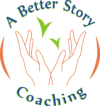Bal·ance (noun)
A state in which different things occur in equal or proper amounts or have an equal or proper amount of importance.
About two years ago, a speaker at a training introduced me to the idea that attempting to separate work from life, as in “work-life balance,” was unreasonable. I agree; work is part of life. At a minimum, we spend about a third of our lives working and, if we have healthy habits, a third sleeping. This idea of work-life balance then leaves us with the notion that labor takes away from “life” and makes us judge ourselves when more of our life “time” is consumed by paid work.
Conversely, the saying “if you do what you love, you will not work a day in your life” also sets false expectations. Most jobs are profit and results-driven endeavors. Because of its transactional nature, it is unavoidable to feel apprehension, even when we are passionate about what we do. If you were to, for example, volunteer the same work you do, most of the stress would probably go away because the financial and formal evaluation of your performance would be gone.
Additionally, maintaining good time management habits is even more challenging with the pandemic and remote work becoming the norm. Tending to your children, picking up dry cleaning, and filling your car’s tank is no longer limited to after work hours or weekends. In the same manner, work time spills into your evenings, making it feel like it never stops.
Unfortunately, since we humans are wired to be social creatures, our jobs’ perceived internal and external pressures feel stressful. This is because the neurons that feed our need for approval and belonging are linked to our pain systems. Setting boundaries is easy — maintaining them is difficult. To beat this instinct, self-regulation and pursuing internal clarity are essential.
Here are a few guidelines you can follow to try to build a routine that allows you for enough play, relax and recharge time without the thought of work following you everywhere you go:
(for an extended description of these guidelines check out my article published in Brainz Magazine.)
As I mentioned in my previous article on burnout, the pandemic has caused many to reconsider the value of work as we knew it. Industries are suffering the consequences of people understanding that they cannot blindly comply with the demands imposed by our old way of working. I think that eventually, things will settle down, but will we be better off when this happens? I believe that we could be as long as we learn to balance the emotional toll our job has on us, so it does not interfere with rest and recovery time.
For more information, you can contact Ivonne at info@abetterstorycoaching.com
